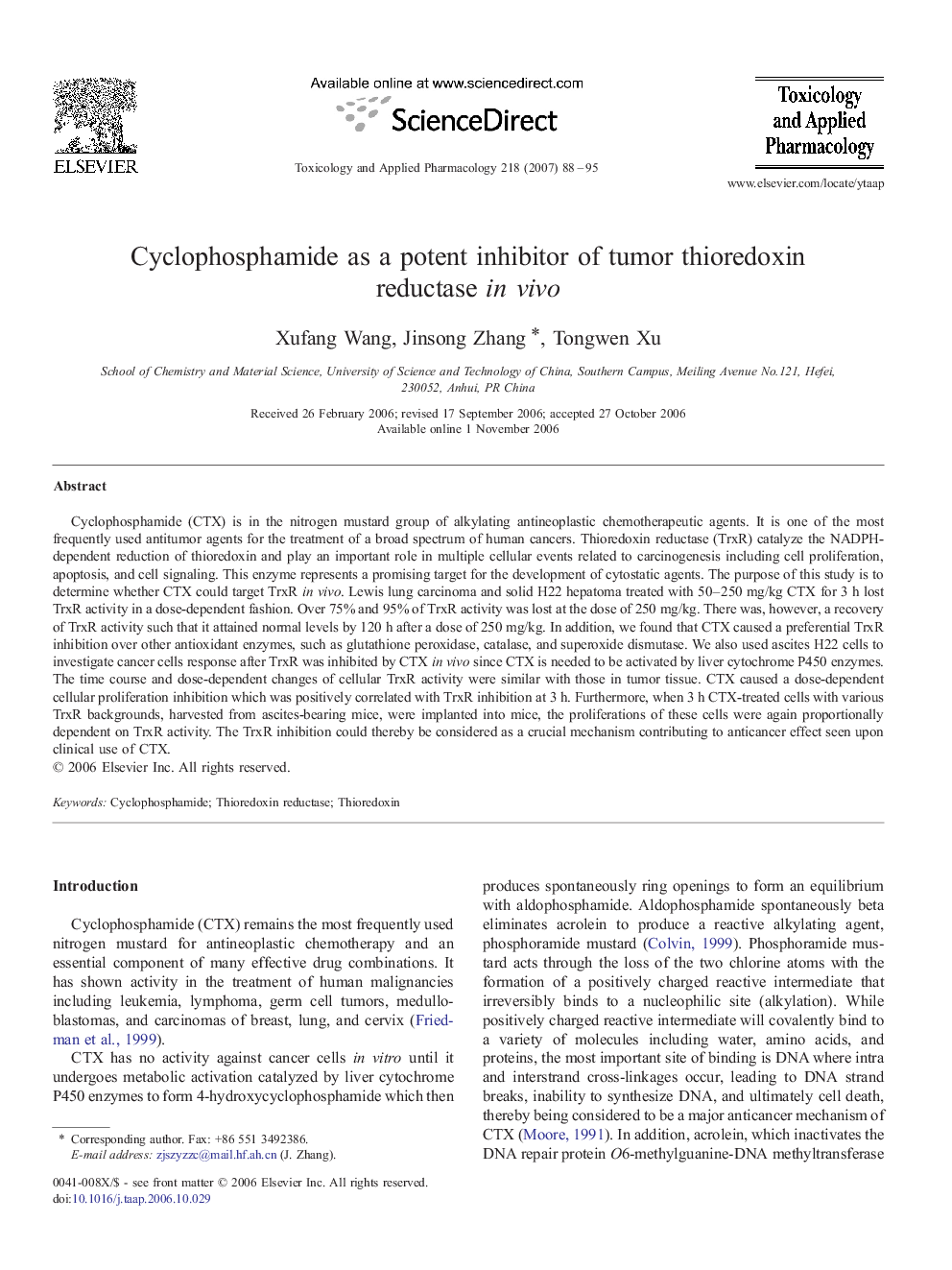| Article ID | Journal | Published Year | Pages | File Type |
|---|---|---|---|---|
| 2571933 | Toxicology and Applied Pharmacology | 2007 | 8 Pages |
Cyclophosphamide (CTX) is in the nitrogen mustard group of alkylating antineoplastic chemotherapeutic agents. It is one of the most frequently used antitumor agents for the treatment of a broad spectrum of human cancers. Thioredoxin reductase (TrxR) catalyze the NADPH-dependent reduction of thioredoxin and play an important role in multiple cellular events related to carcinogenesis including cell proliferation, apoptosis, and cell signaling. This enzyme represents a promising target for the development of cytostatic agents. The purpose of this study is to determine whether CTX could target TrxR in vivo. Lewis lung carcinoma and solid H22 hepatoma treated with 50–250 mg/kg CTX for 3 h lost TrxR activity in a dose-dependent fashion. Over 75% and 95% of TrxR activity was lost at the dose of 250 mg/kg. There was, however, a recovery of TrxR activity such that it attained normal levels by 120 h after a dose of 250 mg/kg. In addition, we found that CTX caused a preferential TrxR inhibition over other antioxidant enzymes, such as glutathione peroxidase, catalase, and superoxide dismutase. We also used ascites H22 cells to investigate cancer cells response after TrxR was inhibited by CTX in vivo since CTX is needed to be activated by liver cytochrome P450 enzymes. The time course and dose-dependent changes of cellular TrxR activity were similar with those in tumor tissue. CTX caused a dose-dependent cellular proliferation inhibition which was positively correlated with TrxR inhibition at 3 h. Furthermore, when 3 h CTX-treated cells with various TrxR backgrounds, harvested from ascites-bearing mice, were implanted into mice, the proliferations of these cells were again proportionally dependent on TrxR activity. The TrxR inhibition could thereby be considered as a crucial mechanism contributing to anticancer effect seen upon clinical use of CTX.
